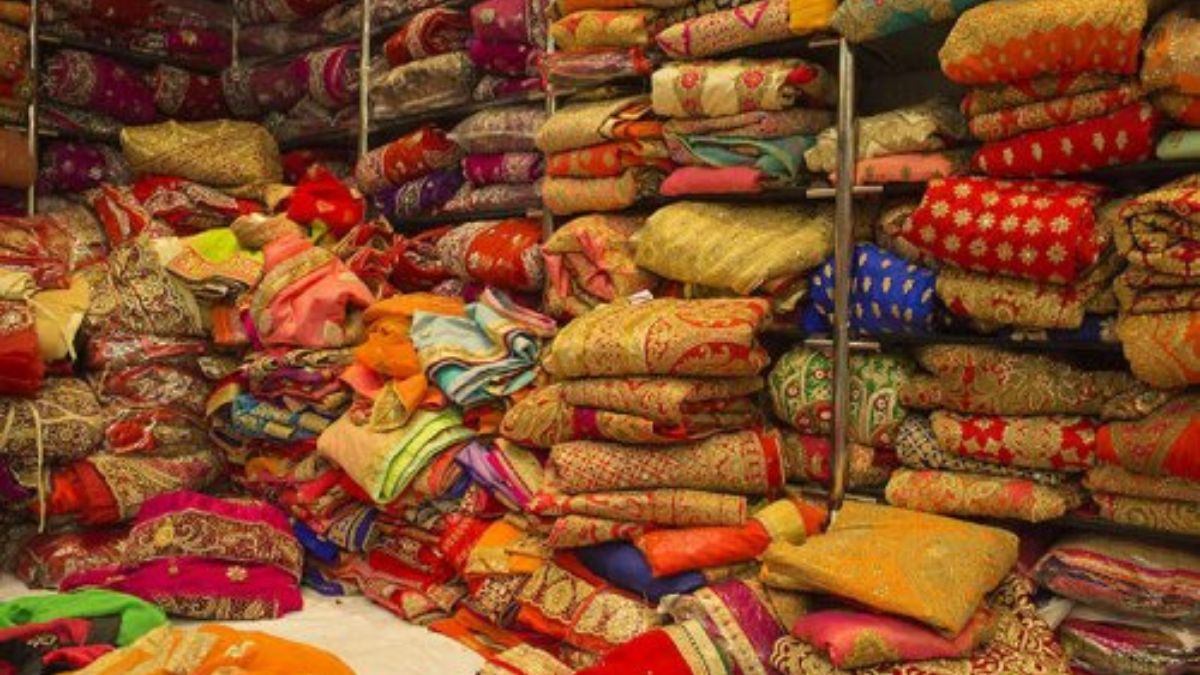Surat Textile Industry Demands Ban on Bangladeshi Garment Imports
Surat’s textile industry is globally renowned, with exports reaching almost every country. However, any international instability, such as the current political chaos in Bangladesh, directly affects the industry

Advertisement
Surat : The recent political instability in Bangladesh has given rise to significant concerns in India’s textile hub, Surat. Complaints of atrocities against Hindus in Bangladesh have escalated, and the viral video of Bangladeshi leaders burning Indian-made sarees has sparked outrage among Surat’s textile traders.
These actions have led Surat’s textile industry to demand an immediate ban on the import of ready-made garments from Bangladesh. Additionally, the traders have urged the Indian government to take decisive steps to recover ₹500 crore stuck in transactions with Bangladeshi traders.
Impact of Political Turmoil on Surat’s Textile Industry
Surat’s textile industry is globally renowned, with exports reaching almost every country. However, any international instability, such as the current political chaos in Bangladesh, directly affects the industry. Bangladesh, which has become a global hub for ready-made garment manufacturing, is a significant competitor to Surat’s textile sector.
Amid the unrest, Bangladeshi leaders have called for a boycott of Indian textiles, even burning Surat-made sarees during public meetings. These incidents have infuriated Surat’s textile traders, who are now pressing for strong retaliatory measures.
Trapped Payments of Rs.500 Crore
The textile traders of Surat have also highlighted a financial crisis caused by the unrest. Payments amounting to ₹500 crore, sent to Bangladesh during Durga Puja for cloth exports, remain unpaid. Traders have demanded the Indian government engage in high-level talks with the Bangladeshi government to ensure the recovery of these funds.
Lalit Sharma, President of the Textile Brigade, voiced strong criticism of the situation. “The atrocities against Hindus in Bangladesh and the burning of Surat-made sarees are unacceptable. Bangladeshi leaders are targeting our industry and economy. We urge the central government to impose an immediate ban on garments coming from Bangladesh. Additionally, muslin sarees imported from Bangladesh should also be prohibited,” he said.
Sharma emphasized that while India’s textile industry is not heavily dependent on Bangladesh, Bangladesh relies on India for raw materials. A ban, he argued, would provide significant momentum to the Indian garment sector.
Opportunities for Indian Textile Manufacturers
Political instability in Bangladesh has already begun shifting orders to Indian manufacturers. Many garment factories in Bangladesh have either slowed operations or shut down due to the unrest. This situation presents an opportunity for India to capitalize on the global demand for textiles.
If the Indian government bans garment imports from Bangladesh, the domestic textile industry could see a historic boom. Such a move would not only strengthen Surat’s textile sector but also contribute significantly to India’s foreign exchange earnings.
Advertisement

